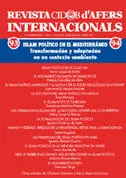Political Islam in the 21st century

Since the 1980s, political Islam or Islamism has created enormous concern both in the political media and the news media. The revolution in Iran in the late 1970s and the election victory by FIS in Algeria in the late 1980s represented two decisive points in the popular and ideological mobilisation by Islamist groups. Immediately after that, the civil war in Algeria and terrorist violence left their mark on the 1990s. The perception of Islamism today is still associated, in many cases, with the dynamics of the end of the past century, and with the jihadism of a few fundamentalist groups, without taking into account the fact that the majority of Islamist groups have undergone an enormous evolution, and that the context in which they are operating is also very different. As we will see, instead of the jihadism or the ideological radicalness of the past century, today’s political Islam is much better represented by the moderation (both ideological and in terms of political activity) of Turkey’s AKP party, the Muslim Brotherhood in Egypt, Morocco’s PJD, Tunisia’s al-Nahdah and most of the parties and large groups. Central factors in this dynamic of moderation are, on one hand, the link between Islamist groups with regimes and, on the other, the claims for and acceptance of liberal democracy as a strategy in their political struggle.
Key words: political Islam, Islamism, democracy, the Arab world, the sociology of power
The full text articles of this issue are available only in Spanish language